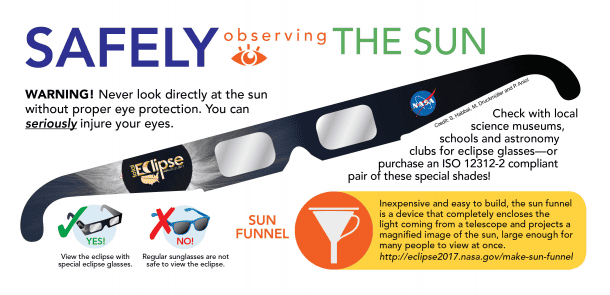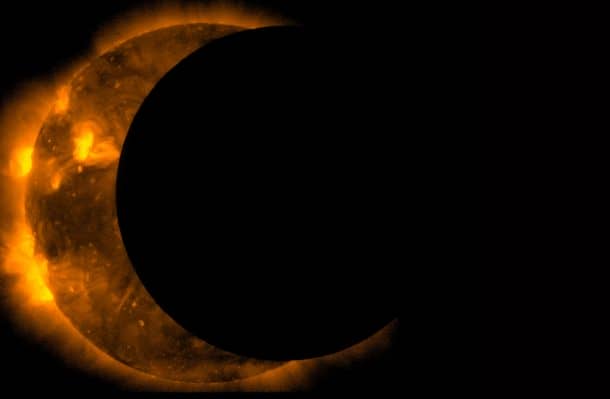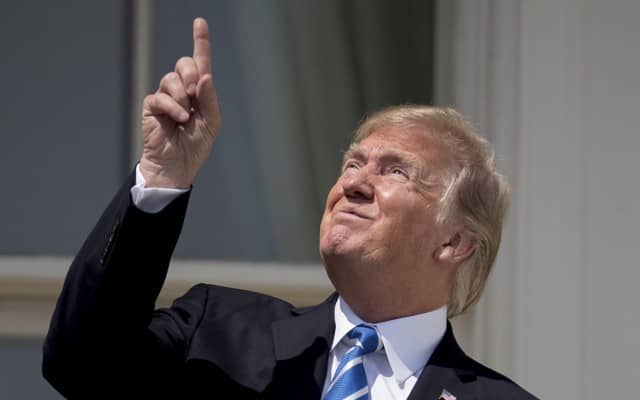Word has been going around forever that it is not a good idea to look at a solar eclipse directly, and the reasons have been ranging from quite reasonable to outright absurd. Many consider it to be an absolute myth and if you are a flat earther, you should consider the eclipse to be a myth itself. In all reality, the solar eclipse just happened and the entire North America witnessed it.
The question that arises is how looking at the sun directly during an eclipse could damage our eyes. The solar eclipse on Monday was the first ever in the history of the US to travel all over America and that is not something you should miss out on witnessing. However, you do need to take serious precautions if you do not want your eyes to be harmed by looking at the sun directly.

The answers to our solar eclipse questions have been brought forward by NASA that explains on their website, “Looking directly at the sun is unsafe except during the brief total phase of a solar eclipse (“totality”), when the moon entirely blocks the sun’s bright face, which will happen only within the narrow path of totality. The only safe way to look directly at the uneclipsed or partially eclipsed sun is through special-purpose solar filters, such as “eclipse glasses.”‘
NASA says that the 70 miles wide path of totality was visible from parts of 14 states and lasted only two minutes and 40 seconds. A partial eclipse was seen in the rest of the country and those who did not take precautions would have suffered some consequences.

Experts say that you can burn your retina by looking at the sun with the naked eye during an eclipse, a phenomenon known as “eclipse blindness.” The vision impairment from the eclipse can be both temporary and permanent and if the condition is really bad, it could end up in legal blindness. Dr. B. Ralph Chou, president of the Royal Astronomical Society of Canada says, “If people look without the proper protection [at the sun], they run the risk of injuring their eyes. And if they get an injury, depending on how often and how long they look at the sun without the protection, they do have a substantial risk of developing a permanent loss of vision. It is not possible to go completely blind from looking at the eclipse because the injury is limited to the central part of your visual field.”
The retina does not have any pain receptors so there will be no immediate symptoms of damage so you won’t even know if your retina has been damaged. Chou says that symptoms of eclipse blindness begin to appear 12 hours after viewing it and most people discover that they have suffered only after they wake up the next morning noticing an altered vision. “They can’t see faces in the mirror, they can’t read the newspaper or the smartphone display, they’re having trouble looking at road signs, and basically they’ve got this center spot in their vision that is intensely blurred,” explained the professor.
If you have inflicted the eclipse damage on your eyes, there is really no effective remedy to fight back. You will have to wait and see if you can regain the vision and this takes a minimum of three months after the incident.
There have been instances of people hurting their eyes by watching the eclipse unfiltered, but they are considerably rare. There are no definitive stats about the affectees, but after the solar eclipse of 1999 that crossed the Britain, 70 such cases were reported. 20 similar cases were reported in Canada after the total solar eclipse of 1979, but Chou says that in most of the reported cases, the vision recovered over the next year.
You should never miss out on a sight like a total solar eclipse but NASA advises you buy eclipse glasses that block 99.99% of all the light rays. And remember, do not watch through an unfiltered camera lens, telescope, or binoculars. It is important that you do not fall for a fake brand so the American Astronomical Society enlisted the manufacturers that sell glasses meeting the standards. Remember to not use the glasses if there is a scratch or damage to the filter.


